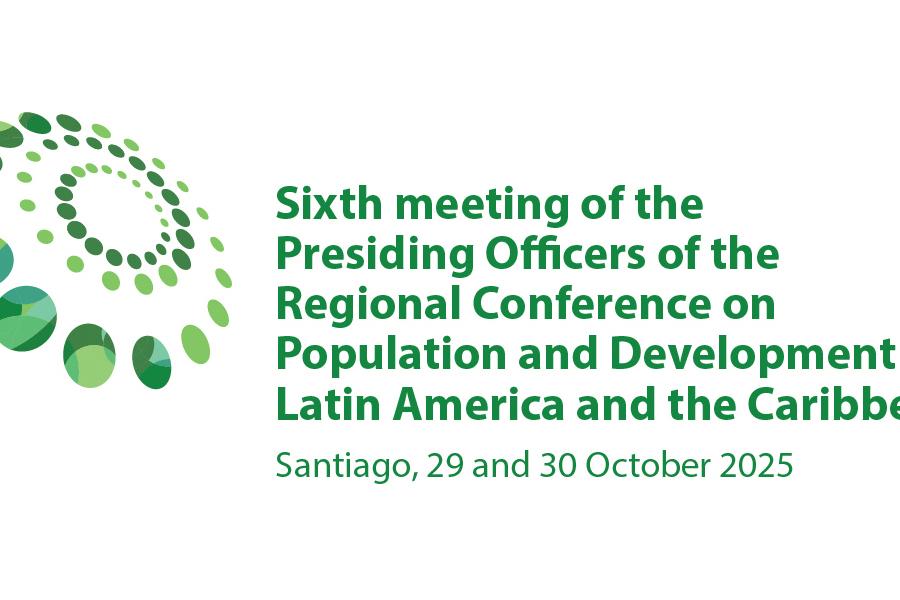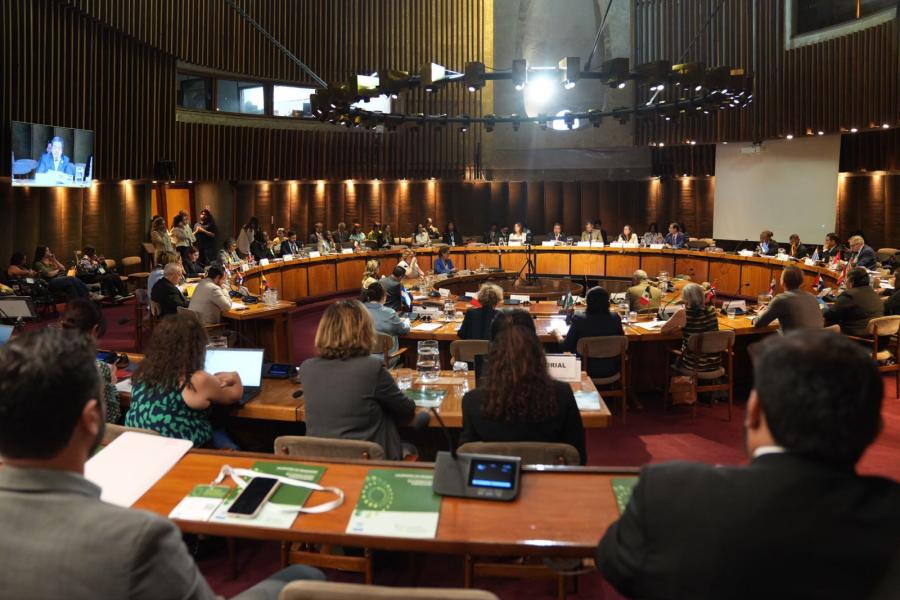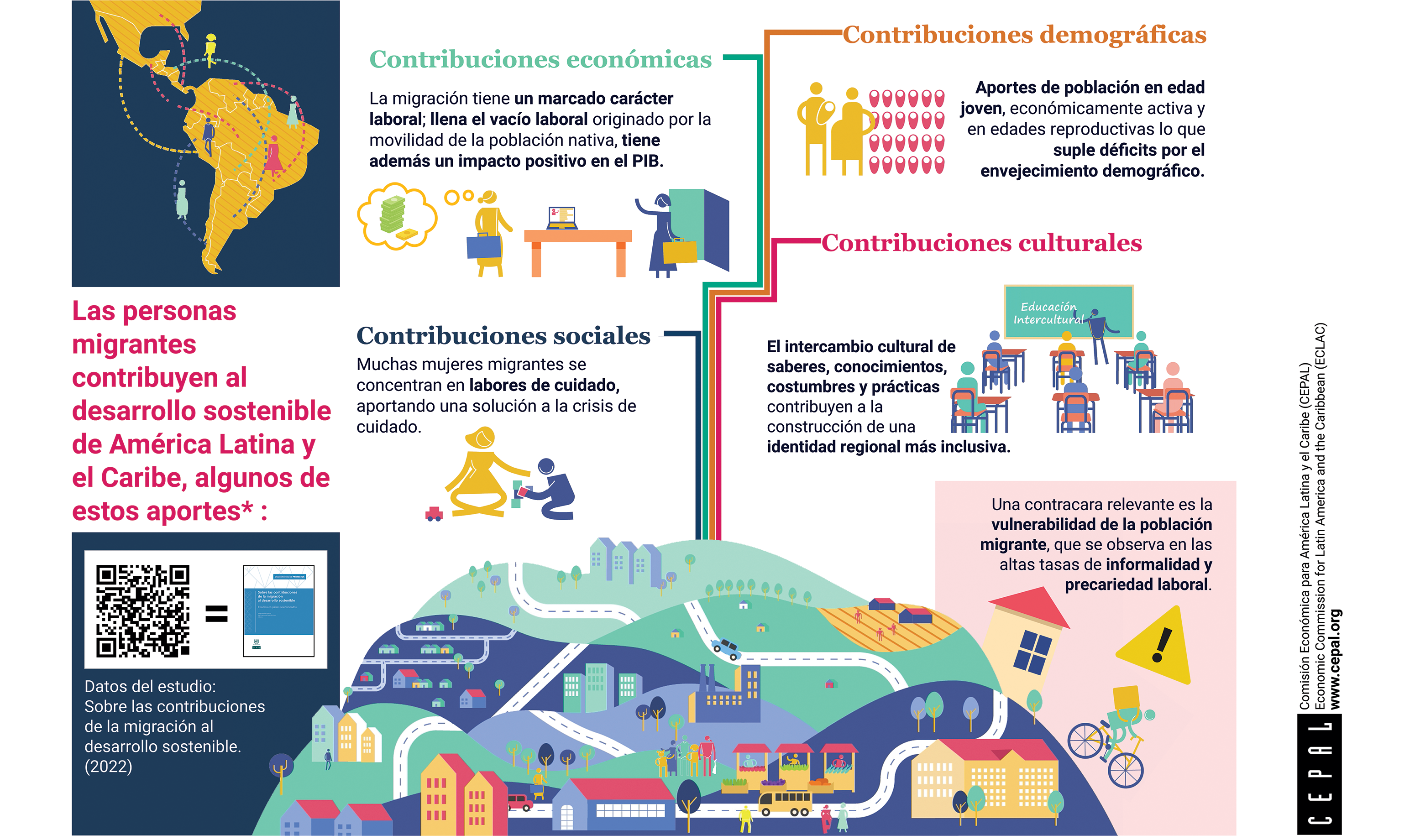Population and development
The mission of ECLAC in the area of population and development is to increase and enhance the ability of the region’s countries to describe, analyse, comprehend and address population dynamics and their links to economic and social development, with a view to incorporating demographic factors into public policies and programmes, especially those aimed at reducing poverty and inequality. To achieve its strategic objective, the Division has received extensive support from organizations of the United Nations system, especially the United Nations Population Fund (UNFPA), and other donors.
Activities


Launch of the Demographic Observatory 2025 Low fertility in Latin America and the Caribbean: emerging trends and dynamics
The Latin American and Caribbean Demographic Center (CELADE) – Population Division of ECLAC invites to the launch of the Demographic Observatory 2025. This publication presents an analysis of historical and recent fertility trends in Latin America and the Caribbean, with a special focus on the region’s declining fertility.

Primer Ciclo Regional de Talleres Técnicos rumbo a la Ronda Censal 2030 en América Latina: Aprendizajes y Desafíos
El objetivo central de este ciclo de talleres es proveer de un espacio de intercambio técnico para que los países de América Latina compartan sus experiencias, estrategias, desafíos y lecciones aprendidas de la ronda censal 2020, y con ello generar aprendizajes significativos, aportando insumos y recomendaciones concretas que sirvan de guía para la planificación y ejecución efectiva de los censos de población y vivienda de la próxima ronda, hacia el año 2030.

Informative (Virtual) Follow-up Meeting on the Regional Intergovernmental Conference on Ageing and the Rights of Older Persons in Latin America and the Caribbean
The objectives of the meeting are to present the regional planning for the next two years within the framework of the fifth review and appraisal of the Madrid International Plan of Action on Ageing, to foster dialogue between countries and the Technical Secretariat of the Conference regarding the preparation of national reports in 2026, and to make ECLAC’s technical assistance available to countries that may require it for the preparation of their reports.
News

Los datos censales de Argentina 2022, Paraguay 2022 y Estado Plurinacional de Bolivia 2024 muestran una disminución de la intensidad de la migración interna
Los nuevos datos de Migración Interna en América Latina y el Caribe (MIALC) de estos países mejoran y amplían el conocimiento sobre los niveles, tendencias, patrones e impactos territoriales de esta migración, incluyendo cambios acaecidos a causa de la pandemia por COVID-19.

Nuevo número de Notas de Población presenta artículos sobre efectos de la dinámica demográfica, migración, fecundidad, seguridad alimentaria, personas mayores y salud mental juvenil
El volumen compilado del No. 121 de la revista reúne ocho estudios científicos, siete de ellos referidos a países de América Latina y el Caribe, y uno de alcance regional.

ECLAC contributes to debates on ageing, care and intergenerational solidarity at the Second World Summit for Social Development
The Director of CELADE – Population Division of the ECLAC, Simone Cecchini, contributed to dialogues on these issues at the Summit, which took place in Doha, Qatar, on 4-6 November 2025.

Regional Population and Development Gathering Culminated at ECLAC with Warnings about Low Fertility, Population Ageing and the Rights of Persons with Disabilities
The Sixth Meeting of the Presiding Officers of the Regional Conference on Population and Development in Latin America and the Caribbean took place at the United Nations regional organization’s headquarters in Santiago, Chile.
Publication featured
Economic impacts of population ageing in Latin America and the Caribbean: challenges and opportunities
This document analyses the economic implications of rapid population ageing in Latin America and the Caribbean, highlighting both the challenges it poses for economic growth, the labour market, and…








